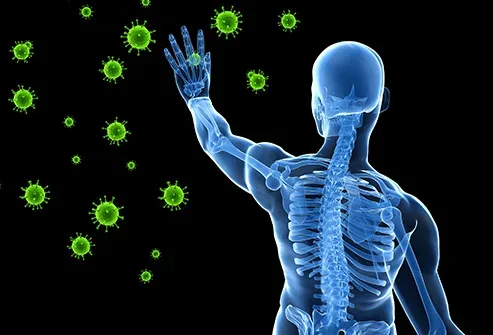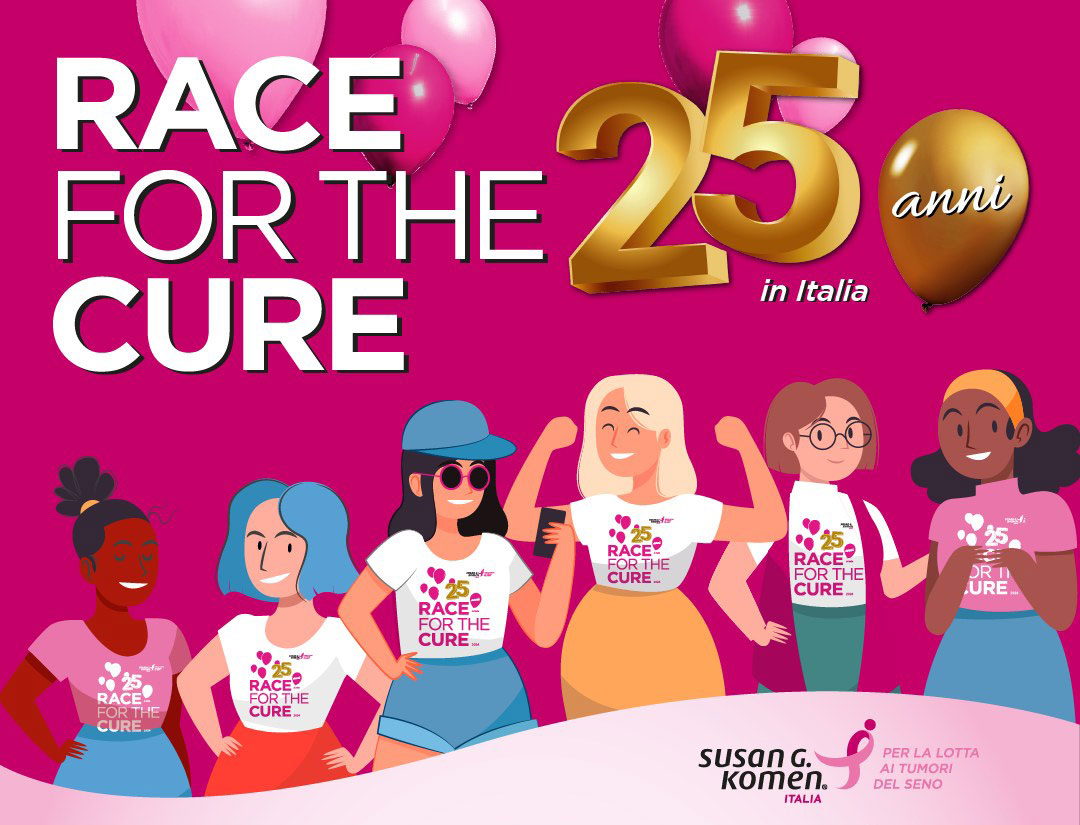How does your immune system work? What are some misconceptions about vaccines? Which ones should you get before traveling to Italy? Does an apple a day really keep the doctor away? Let’s find out!
Overview of your immune system
Before talking about vaccines, we’ll start by discussing your body’s immune system. Your body’s immune system consists of different types of proteins, cells, tissues, and organs used to to fight pathogens and prevent infection. You have both innate and adaptive (acquired) types of immunity.

Innate immunity is nonspecific, meaning that your innate immune system reacts the same way to each type of microorganism. You are born with innate immunity. As examples, your skin is a physical barrier that prevents pathogens from entering your body and you have phagocytic cells that “eat” and destroy potential infection-causing organisms. Fever and inflammation are also examples of innate immunity.
Adaptive immunity develops over your lifetime and is pathogen-specific. Antibodies, proteins that bind to parts of pathogens to help neutralize them, are an example of adaptive immunity. Your body has four different types of adaptive immunity that differ depending on how you acquire it. Active immunity is created by your own body when you come into direct contact with a microorganism. It takes time to develop and can last for the rest of your life. Passive immunity, on the other hand, means that you receive antibodies from someone else. Passive immunity immediately takes effect but the protection from pathogens doesn’t last as long. Both active and passive immunity have natural and artificial types.

Vaccines
Vaccines are considered a type of artificially acquired active immunity. They are made from weakened or dead microorganisms, their toxins, or their surface proteins. When your body is introduced to the contents of the vaccine, it identifies, kills, and remembers the type of organism. This makes it easier for your body to protect itself if you encounter the pathogen again.
Unfortunately, there is a lot of controversy about vaccines in the media today. The major catalyst was when Andrew Wakefield, a former doctor from Britain, published an article 20 years ago making the incorrect association between the measles, mumps, rubella (MMR) vaccine and autism. The study was flawed both scientifically and ethically. Wakefield falsified each of the 12 cases reported in his paper. He changed information about his patients’ medical histories in order to justify his untrue claim. He was involved in a lawsuit against the makers of the vaccine, which posed a major conflict of interest. Not only that, but investigations have revealed his unethical treatment of children in the study. Wakefield’s paper has been retracted and his medical license was taken away. For more information, please read these articles from The British Medical Journal and The Indian Journal of Psychiatry.
The CDC, Autism Speaks, the World Health Organization (WHO), the American Academy of Pediatrics, and countless other accredited organizations all state that there is no association between vaccines and autism. There is a wealth of research supporting this statement.
The truth is that vaccines help keep us healthy by protecting us from preventable diseases. They save between 2 and 3 million lives each year and are effective against 26 diseases. Vaccines also decrease antibiotic resistant infections. When people aren’t vaccinated, previously controlled diseases can have outbreaks. For example, measles was declared eliminated in the United States in 2000, meaning that there was no continuous transmission of the disease for one year or more. But in 2014, there was a high of 667 people in the U.S. with measles.
When you get vaccinated, you aren’t only protecting yourself, but also others in your community:
- Infants may not being old enough to get their vaccines yet.
- Elderly individuals have a higher risk for both contracting a disease and experiencing more serious complications.
- Immunocompromised individuals may not be able to be vaccinated because of their weakened immune systems.

Vaccines are also thoroughly tested for their safety. The Food and Drug Administration (FDA) tests vaccines in labs and three phases of clinical trials before they are licensed. Then, the CDC recommends when they should be added to the U.S. official immunization schedules after review by experts in medicine and public health. Both the FDA and the CDC continue to examine the safety of the vaccine through various reporting systems and assessments. As with any type of medical intervention, though, there are risks of side effects. The most common aren’t serious and last only a couple of days. They include redness, swelling, and/or pain at the injection site, tiredness, fever/shivering, headache, and muscle pain. You’re welcome to talk with your healthcare provider about these concerns and more before getting your vaccine.
What types of vaccines should I get before traveling to Italy?
Making sure that you have up-to-date vaccinations is crucial when traveling. Remember that this is a general guide. Make sure you talk to your healthcare provider about your own specific vaccination history and needs.
Everyone is recommended to be up-to-date with their routine vaccinations. These include vaccines against:
- Measles, mumps, rubella (MMR)
- The European Centre for Disease Prevention and Control reports that there are current measles outbreaks in Greece, Romania, France, and Italy. Getting vaccinated is the best way to protect yourself against this disease.
- Diphtheria, tetanus, pertussis (DTP, DTaP, Tdap)
- Varicella (chickenpox)
- Polio
- Yearly influenza (flu) shot
The hepatitis A and B vaccines may also be recommended. The rabies vaccine is usually only given to those at risk for animal bites (from major outdoor traveling, camping, wildlife work, etc.).
If you have any questions about vaccines, your immune health, or any other health concerns, feel free to reach out to our wonderful MedinAction doctors!

What are some other ways to keep my immune system healthy when traveling?
So now you have a brief overview of your immune system and vaccines. Handwashing and living a healthy lifestyle are other great ways to keep your immune system in tip-top shape when traveling.
Handwashing is a great way to prevent the spread of infection, especially when around new types of organisms when traveling. Unfortunately, 84% of people do not wash their hands for a long enough period of time according to the Royal Pharmaceutical Society. After wetting your hands and applying soap, you should scrub your hands for at least 20 seconds. Fun tip: scrub your hands while singing the “Happy Birthday” song twice from start to finish. Two rounds of this song lasts about 20 seconds! After your 20 seconds of scrubbing, rinse your hands under the water and dry them. Remember to wash your hands before and after preparing food, before eating, and after using the bathroom, blowing your nose/coughing/sneezing, coming in contact with an animal, and touching garbage. If you are not able to wash your hands, you should use an alcohol-based hand sanitizer. These are not replacements for washing your hands, but the best option until you can do so.

According to Harvard Medical School, having a healthy lifestyle is another important step in keeping your immune system healthy. A healthy lifestyle includes:
- Regular exercise- At least 150 minutes of moderate intensity exercise per week according to the Physical Activity Guidelines for Americans by the U.S. Office of Disease Prevention and Health Promotion.
- Healthy diet- The U.S. Department of Agriculture’s Dietary Guidelines for Americans recommends colorful fruits and vegetables, lean protein, whole grains, healthy fats, and low-fat dairy. Adequate intake of micronutrients like zinc, folic acid, iron, and copper as well as vitamins A, B6, C, and E may also help support a healthy immune system. For more information, see https://www.choosemyplate.gov/. Always consult your healthcare provider about specific dietary advice.
- Not smoking- Smoking is associated with cancer, cardiovascular disease, respiratory infections, fertility problems, increased healing time, cataracts, and frailty with age. For more information about quitting smoking, see https://smokefree.gov/.
- Maintaining an appropriate weight- Talk with your healthcare provider about your weight and if it is appropriate for your height and body type. Being overweight or obese increases your risk of high blood pressure, cholesterol and triglyceride imbalances, type 2 diabetes, cardiovascular disease, stroke, gallbladder issues, osteoarthritis, sleep apnea, and some cancers according to the Centers of Disease Control (CDC).
- If you drink alcohol, moderate drinking- This is one drink per day for women and two drinks per day for men. The National Institutes of Health (NIH) states that one standard drink is 12 oz of regular beer, 5 oz of wine, or 1.5 oz of distilled spirits (gin, rum, vodka, whiskey, tequila, etc.).
- Getting enough sleep- 7 to 9 hours for most adults according to the National Sleep Foundation.
- Minimizing stress- The American Psychological Association recommends friendship and relaxation techniques to improve your immune health. Loneliness and emotional stress are tied to a weakened immune system.

Be wary of products claiming to improve your immune health. Instead, focus on getting your vaccinations, having good hygiene, and living a healthy lifestyle.
[su_divider top=”no” divider_color=”#f97575″ size=”1″]Ask for an advice from an expert. Insert your data, you will be contacted shortly!
[wpforms id=”14577″ title=”false” description=”false”]



